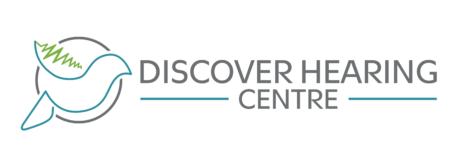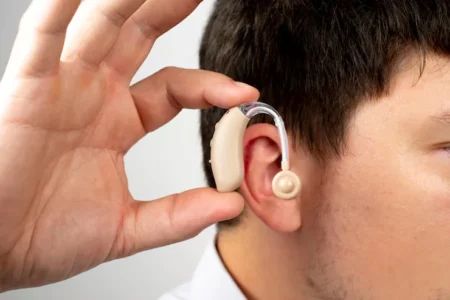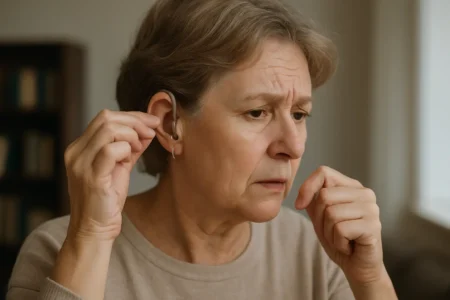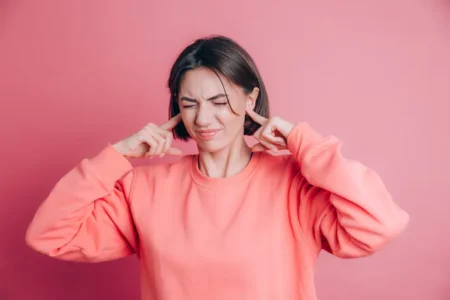The Impact of Noise Pollution on Hearing Health
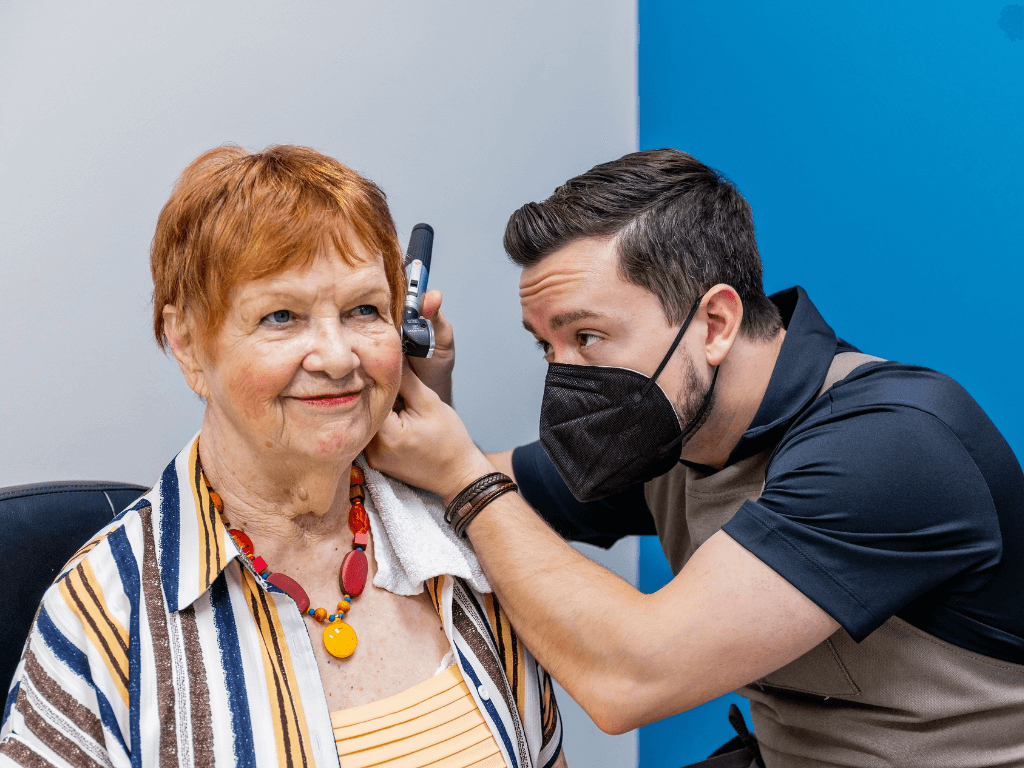
Did you know that over 1 billion young people worldwide are at risk of hearing loss due to exposure to loud noise? Whether from unsafe listening habits or environmental noise, the growing noise pollution seriously jeopardizes hearing health. Despite how common it is in urban areas, many people don’t fully realize how damaging noise pollution can be.
This blog will explore what noise pollution is, how it affects our hearing health, and what we can do to protect ourselves from its harmful effects.
What is Noise Pollution?
Definition and Sources of Noise Pollution
In simple terms, noise pollution is unwanted or excessive sound that can harm our health. Common sources include traffic, construction, industrial noise, and even loud music. It’s everywhere—whether it’s the constant hum of the city or the jarring sound of roadwork. Indoor sources like loud appliances or overly noisy environments can also contribute to noise pollution.
For people living in big cities, noise is nearly impossible to escape from. From the roar of airplanes to honking cars, noise has become an inseparable part of urban life.
Global Perspective on Noise Pollution
With the rise of urbanization, noise pollution is more prevalent than ever. Cities worldwide report higher noise levels due to increased human activity. Not only does this affect people, but it also impacts wildlife and ecosystems. Animals rely on sound for communication and navigation; noise pollution can disrupt these essential functions.
How Noise Pollution Affects Hearing Health
Mechanism of Hearing Damage
Our ears are sensitive organs, and noise-induced hearing impairment occurs when they’re exposed to sounds that are too loud for too long. Hair cells in the inner ear are responsible for sending sound signals to the brain. When exposed to loud noises, these hair cells can become damaged, and unfortunately, they don’t regenerate.
Hearing damage starts when sound levels exceed 85 decibels (dB). That’s roughly the noise level of heavy traffic or a busy restaurant. The louder the sound, the less time it takes to cause permanent damage. For example, attending a loud concert without ear protection or sudden exposure to a loud explosion can cause acoustic trauma, leading to immediate hearing loss or tinnitus—a ringing in the ears.
Short-Term vs. Long-Term Damage
Not all hearing damage is permanent, but prolonged exposure to loud sounds can have lasting consequences.
- Temporary Threshold Shift (TTS) occurs when people experience temporary hearing loss after exposure to loud sounds. For example, they may experience ringing in their ears after a concert or fireworks display. While this condition typically resolves, repeated exposure can lead to permanent damage.
- Permanent Threshold Shift (PTS) occurs after prolonged exposure to harmful noise levels. Once hearing loss becomes permanent, there’s no going back, making protecting your ears early on vital.
Also Read: Essential Tips to Maintain & Care for Your Hearing Aids
Types of Hearing Damage
There are two main types of hearing damage related to noise exposure:
- Noise-Induced Hearing Loss (NIHL): Long-term exposure to sounds above safe levels damages the hair cells in the ear, leading to gradual hearing loss.
- Tinnitus: A constant ringing, buzzing, or hissing in the ears, often caused by exposure to loud noise. This can be temporary but may also become chronic, significantly impacting day-to-day life.
The World Health Organization (WHO) estimates that 466 million people globally suffer from disabling hearing loss, many due to noise exposure. In fact, one in four adults in industrialized countries is at risk of developing hearing problems from excessive noise exposure.
Long-Term Impact of Noise Pollution on Hearing
Gradual Hearing Loss
Constant exposure to even moderate noise can cause gradual, permanent damage. Over time, this exposure can result in hearing loss, making it harder to communicate or enjoy social interactions. People may not notice the damage in cities with high noise levels until it’s too late.
Other Health Impacts Related to Hearing Damage
Noise pollution doesn’t just affect hearing—it can have wider health implications, including:
- Cognitive decline: People with untreated hearing loss are more likely to experience cognitive decline or develop conditions like dementia.
- Communication difficulties: Losing the ability to hear clearly can make everyday conversations a struggle, leading to social isolation and emotional distress.
- Sleep disturbances: Excessive noise at night disrupts sleep, increasing stress and impacting overall well-being.
Irreversibility of Long-Term Hearing Loss
Perhaps the most severe consequence of noise exposure is that hearing loss is irreversible. Once the damage is done to the hair cells in the inner ear, there’s no way to fix it. This makes it even more crucial to protect our ears before permanent damage occurs.
Preventive Measures to Protect Hearing Health
Reducing Exposure to Noise Pollution
Fortunately, there are several ways to reduce your exposure to noise pollution:
- Soundproof your home: Simple solutions like adding insulation or upgrading to double-pane windows can reduce noise entering your living space.
- Use ear protection: Earplugs or noise-cancelling headphones are great for blocking out harmful noise in loud environments like concerts or during commutes.
Workplace Safety Measures
Occupational noise hazards are a major concern in many industries. Construction, manufacturing, and even transportation jobs often involve exposure to loud sounds. Wearing ear protection, like earplugs or earmuffs, is essential, and many organizations must comply with regulations like OSHA’s permissible noise levels to keep workers safe.
Regular Hearing Checkups
One of the best ways to stay on top of your hearing health is by scheduling regular hearing checkups. Detecting hearing loss early can help you take action before the damage worsens. If you suspect you may be at risk, consider visiting a hearing clinic like Discover Hearing Centre for a comprehensive hearing test.
Technological Solutions
Modern technology offers new ways to protect your hearing. Apps monitor sound levels and warn you when noise reaches unsafe levels. Home gadgets like white noise machines and noise-reducing barriers can also help lower your exposure to environmental noise.
Protect Yourself Against Noise Pollution
Noise pollution is more than just an annoyance—it can have lasting effects on our hearing health. The damage it causes can lead to permanent hearing loss, cognitive decline, and social isolation. However, by taking steps to reduce exposure, wearing proper ear protection, and staying proactive with regular hearing checkups, you can protect your ears and maintain your auditory health.
For those concerned about hearing health, scheduling a visit to our hearing clinic in Kitchener can be a smart first step. A comprehensive hearing test can help identify any early signs of hearing loss and provide strategies to keep your hearing in top condition, such as custom earplugs. Don’t wait until the damage is done—take action today to protect your hearing.
We offer comprehensive audiology services, from hearing tests and education to digital hearing aids and personalized hearing loss treatments that put you and your specific hearing health needs at the centre. Whether you need a hearing test, are looking for hearing aid repairs, hearing aid batteries, invisible hearing aids, custom-moulded earplugs, or require help with hearing aid fittings and programming, Discover Hearing Centre is here for you.
Discover Hearing Centre is a local clinic specializing in the treatment of hearing loss; we’ve worked with hundreds of patients to help them maintain independence. Whether you’re experiencing hearing loss or tinnitus, we’re dedicated to improving your quality of life through better hearing. When you choose us, you choose a team committed to your well-being.
Call us today at 519-208-4327 or fill out our convenient online form to learn more about how we can help you with hearing loss issues.
You Might Also Like
Behind-the-Ear vs. In-the-Ear Hearing Aids: Which One Is Right for You?
Common Mistakes First-Time Hearing Aid Users Make and How to Avoid Them
The Link Between Tinnitus and Hearing Loss: What You Need to Know
Have Questions?
Curious about hearing loss, tinnitus relief, or treatment options in Waterloo? Talk to one of our hearing care professionals today.
